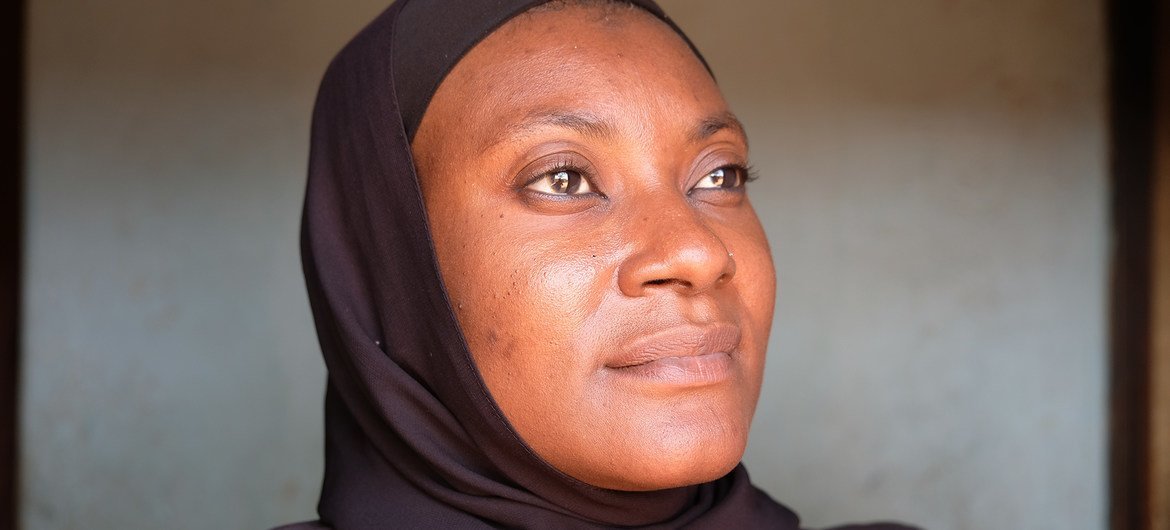First Person: ‘If I die fighting for justice, I will not have regrets’ |
Ms. Mohammed, the only woman to have opened a law firm in the northwestern Nigerian states of Sokoto, Kebbi and Zamfara, is known for fiercely prosecuting rapists and paedophiles, even though such cases are considered highly difficult to win. She spoke to the UN ahead of International Women’s Day which is marked annually on 8

Ms. Mohammed, the only woman to have opened a law firm in the northwestern Nigerian states of Sokoto, Kebbi and Zamfara, is known for fiercely prosecuting rapists and paedophiles, even though such cases are considered highly difficult to win. She spoke to the UN ahead of International Women’s Day which is marked annually on 8 March.
“I have always been passionate about speaking up for the less privileged, even when I was in secondary school. I have seen many cases of gender-based violence, but not many people speak up against it, and the reason most victims don’t talk about what happened is because they don’t feel that they have support. If they report the case, they feel that nobody cares about them.

Rashidat Mohammed
Rashidat Mohammed, the only woman to have opened a law firm in the Nigerian states of Sokoto, Kebbi and Zamfara
In 2018 I decided to open my own law firm, to advocate for women and children and to provide free legal services to less privileged, vulnerable people. I saw that there had never been a female-run firm in this part of the country and thought, well, whatever a man can do, a woman can also do, and do it better!
I have faced a lot of harassment and intimidation over the last two years, but I would say that my gender has generally been an asset when working with survivors of gender-based violence: victims prefer talking to a woman than a man, they can open up more easily to a female lawyer. In order to encourage others to come out to speak against violence or child abuse, I regularly visit them and treat them as part of my family.
The case I’m proudest is one involving the sexual assault of a four-year-old-girl. Her alleged attacker was a powerful and well-connected man, with one of the best lawyers in Sokoto. I was scared because of the stories I heard about the man. My colleagues were calling me, saying ‘Rashidat, what is wrong with you? Why not back out of this case?’ Even my daughter asked me to drop the case, but I said, if I die fighting for justice, I will have no regrets.
In the end, I decided to call as many journalists as possible to tell them about the case: when they realized that the media was involved, the authorities had no choice other than to do the right thing, and the case was transferred to the state Criminal Investigation Department (CID) for investigation.
The accused is now being held in prison while the Ministry of Justice reviews his case. I’m proud of this case because people thought that what I did was not possible, that this man could never be tried. But I did it.
I want my children to see a Nigeria where women’s voices are heard, and even children are able to speak for themselves. I want my children to grow up in a Nigeria where women and men are given equal opportunities, equal access to education, job opportunities, and political and economic opportunities.
We’ve been talking about gender-based violence but now it’s time to act. If you see something, say something. Let’s stop stigmatizing those who are victims of violence.”
Rashidat Mohammed was speaking to the Spotlight Initiative a UN and European Union initiative to eliminate all forms of violence against women and girls.
- The UN says gender equality is not only a fundamental human right, but a necessary foundation for a peaceful, prosperous and sustainable world.
- One of the 17 Sustainable Development Goals, SDG 5 on gender equality aims to end all forms of discrimination against all women and girls everywhere.
- The importance of protecting women’s rights has been highlighted during the COVID-19 pandemic with a global increase in reported domestic and gender-based violence.




.jpeg)
.jpeg)



.jpeg)


.jpeg)
